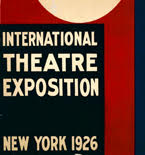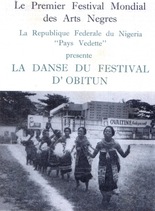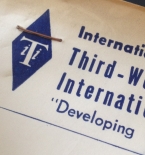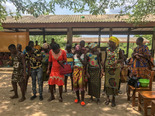These two sub-projects investigate arts festivals that took place on the African continent in the 1960s and 1970s – the First World Festival of Negro Arts in Dakar (1966), the Pan-African Cultural Festival in Algiers (1969), the Second World Black and African Festival of Arts and Culture in Lagos (1977), as well as the Pan-African Historical Theatre Project, a festival held in Ghana every two years since 1992. They aim to lay open ways in which the cosmopolitan theatrical organizational field, the corresponding epistemic community and the modes of funding – public funds, philanthropy and private donors – shape the artistic work. They ask about the relationship between the event character of those festivals and long-term institutional developments of the performing arts.
more







